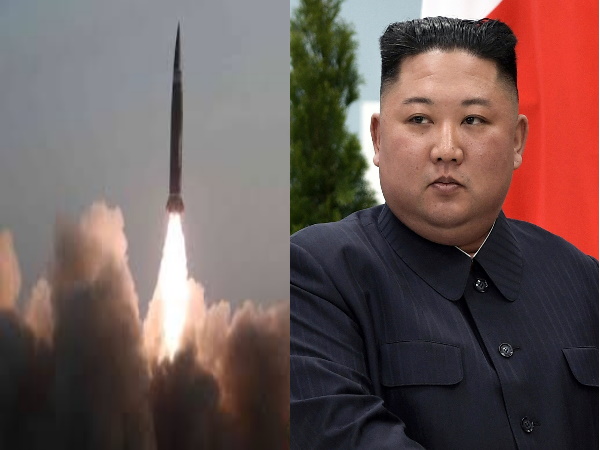
North Korea fired two short-range ballistic missiles toward the sea on Friday in its first ballistic weapons launches in two weeks, as the U.S. military warned the North that the use of nuclear weapons “will result in the end of that regime.”
South Korea’s military detected the two launches from the North’s eastern coastal Tongchon area around midday on Friday, Seoul’s Joint Chiefs of Staff said in a statement. South Korea’s military has boosted its surveillance posture and maintains readiness amid close coordination with the United States, it said.
The U.S. Indo Pacific Command said the launches did not pose an immediate threat to the United States or its allies but highlighted the “destabilizing impact” of North Korea’s illicit nuclear weapons and ballistic missile programs.
The back-to-back launches, the North’s first ballistic missile tests since Oct. 14, came on the final day of South Korea’s annual 12-day “Hoguk” field exercises, which also involved an unspecified number of U.S. troops this year. Next week, South Korean and U.S. air forces plan to conduct a large-scale training as well.
North Korea sees such regular drills by Seoul and Washington as practice for launching an attack on the North, though the allies say their exercises are defensive in nature.
Next week’s “Vigilant Storm” aerial drills are to run from Monday to Friday and involve about 140 South Korean warplanes and about 100 U.S. aircraft. The planes include sophisticated fighter jets like F-35 from both nations, South Korea’s Defense Ministry said in a statement earlier Friday.
Since late September, North Korea has launched a barrage of missiles toward the sea in what it called simulated tests of tactical nuclear weapons systems designed to attack South Korean and U.S. targets. North Korea says its testing activities were meant to issue a warning amid a series of South Korea-U.S. military drills. But some experts say Pyongyang has also used its rivals’ drills as a chance to test new weapons systems, boost its nuclear capability and increase its leverage in future dealings with Washington and Seoul.
Tongchon, the launch site for the North’s Friday launches, is about 60 kilometers (37 miles) away from the inter-Korean border. The area was apparently closer to South Korea than any other missile launch site North Korea has used so far this year.
South Korea and the United States have strongly warned North Korea against using its nuclear weapons preemptively.
The Pentagon’s National Defense Strategy report issued on Thursday stated that any nuclear attack by North Korea against the United States or its allies and partners “will result in the end of that regime.”
“There is no scenario in which the Kim regime could employ nuclear weapons and survive,” the report said. The Pentagon said it will continue to deter North Korean attacks through “forward posture,” including nuclear deterrence, integrated air and missile defenses, and close coordination and interoperability with South Korea.
During a visit to Tokyo on Tuesday, U.S. Deputy Secretary of State Wendy Sherman reiterated that the United States would fully use its military capabilities, “including nuclear,” to defend its allies South Korea and Japan.
There are concerns that the North could up the ante in the coming weeks by conducting its first nuclear test since 2017.
Rafael Grossi, chief of the International Atomic Energy Agency, said Thursday that a new nuclear test explosion by North Korea “would be yet another confirmation of a program which is moving full steam ahead in a way that is incredibly concerning.”
He said the U.N. agency has been observing preparations for a new test, which would be the North’s seventh overall, but gave no indication of whether an atomic blast is imminent.
In recent days, North Korea has also fired hundreds of shells in inter-Korean maritime buffer zones that the two Koreas established in 2018 to reduce frontline military tensions. North Korea has said the artillery firings were in reaction to South Korean live-fire exercises at land border areas.
On Monday, the rival Koreas exchanged warning shots along their disputed western sea boundary, a scene of past bloodshed and naval battles, as they accuse each other of violating the boundary.
Copyright AP – Associated Press/ nbcdfwnews
NB: Some images retrieved from Google, will remove at owner’s request.
